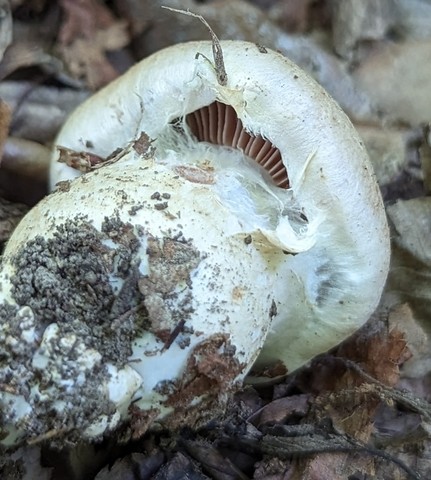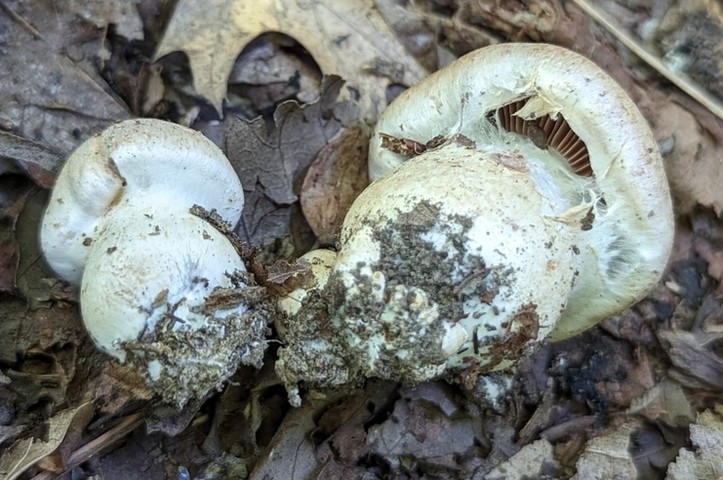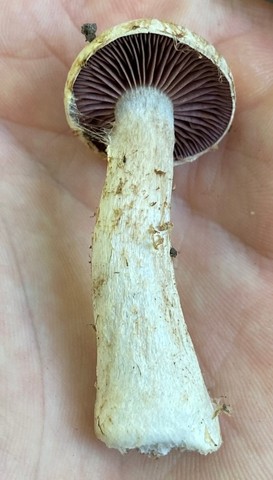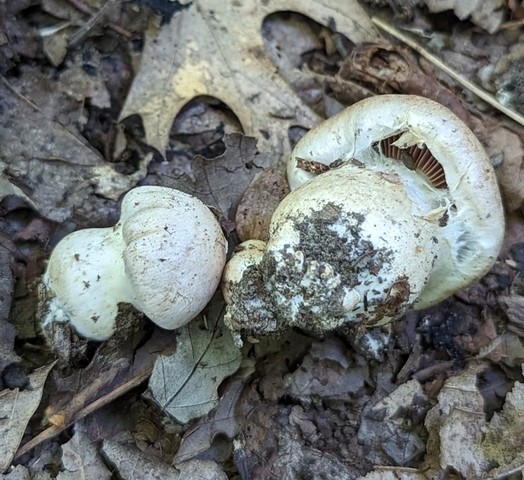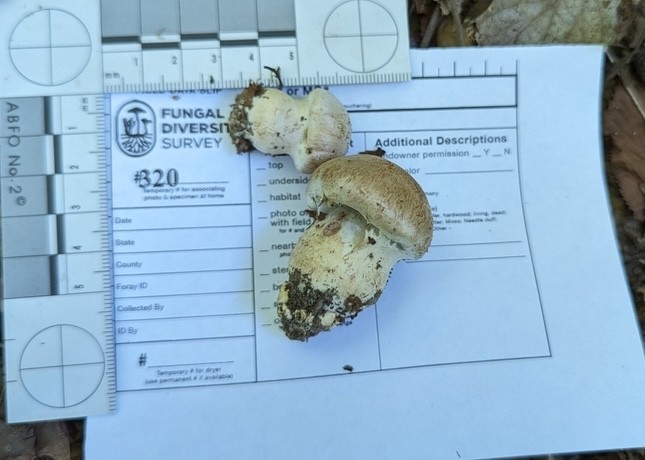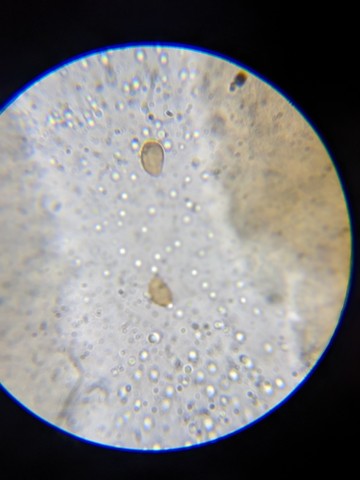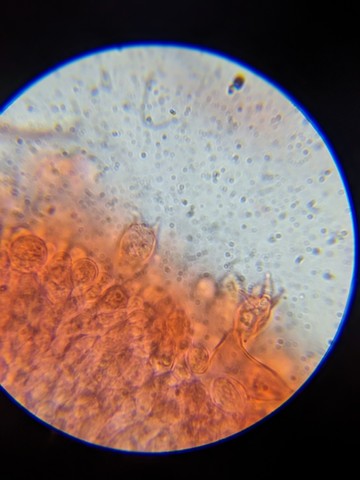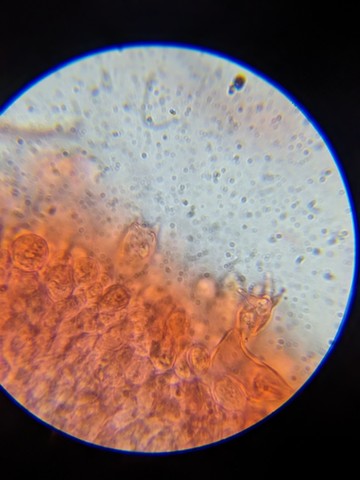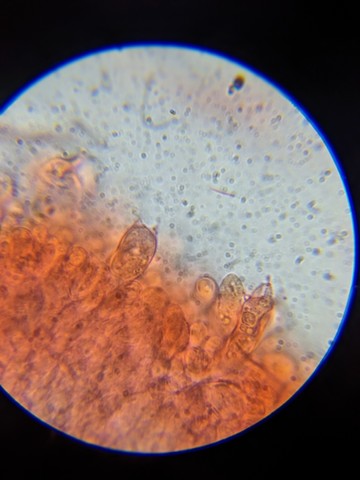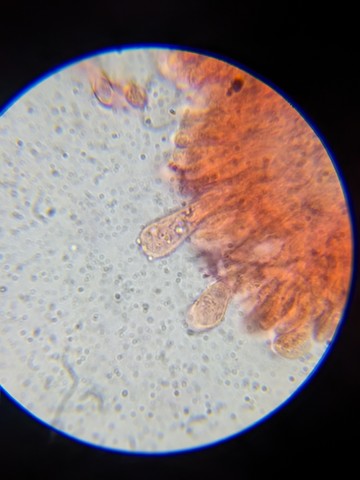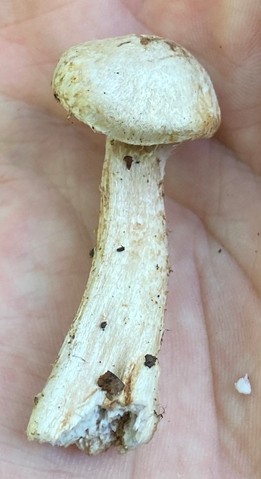Cortinarius subpulchrifolius
Life > Fungi > Basidiomycota > Agaricomycotina > Agaricomycetes > Agaricomycetidae > Agaricales > Agaricineae > Cortinariaceae > Cortinarius
Description
Cortinarius subpulchrifolius is a mycorrhizal mushroom found growing on the ground among fallen leaves in hardwood and mixed forests. It appears in September and October, often in small clusters or scattered groups. The name subpulchrifolius means “somewhat beautiful-gilled,” referencing its dull purple gills, which are a distinctive feature that persists longer than in many similar species. It resembles Cortinarius pulchrifolius but can be separated by differences in spore size and cap color (Kauffman, 1918).
The cap is 1.5–4 inches (4–10 cm) wide and starts out rounded before flattening with age, sometimes with a slight bump in the center. It is dry and silky-looking, grayish-buff when young, and may become yellow-brown or rusty as it matures. The edge of the cap may show patches of a white veil in young specimens. The gills start dull purple and gradually turn cinnamon-brown with age. The stem is thick, 2–4 inches (5–10 cm) long, pale with a whitish to dingy veil that may leave a faint ring or patchy zone. A white cortina (web-like veil) may be visible in younger mushrooms. The spore print is rusty brown.
Observations
August 16th, 2023 Indian Cave State Park
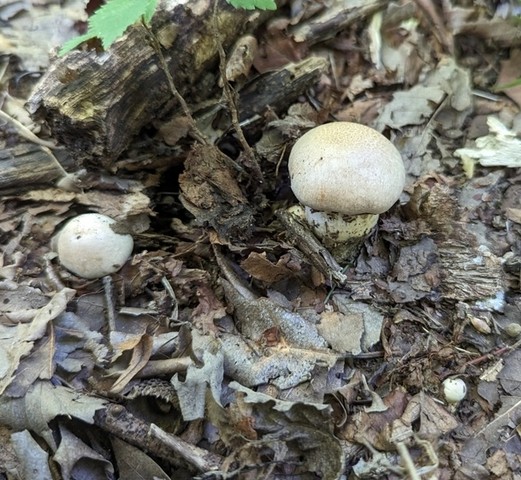
#320
Growing gregariously from soil in open mixed oak/hickory woodland slope (north facing)
Nearby trees: American Hophornbeam, American Linden, Red Mulberry, Elm, and Black Oak.
- All mushrooms immature
- Cap tan, becoming lighter towards margin as colors crack (light tan)
- Lamellae: covered by white cottony veil; purplish, lighter edges
- Stipe: thick and "booted" with thin light tan like cap margin, cream white underneath.
- White basal mycelium
- Smell: earthy
- Taste: nutty (pleasant)
- Microscopy: rehydrated in KOH and mounted in Melzer's+ Congo Red.
GTCGTAACAAGGTTTCCGTAGGTGAACCTGCGGAAGGATCATTATTGAAATAAACCTGATGGGTTGTTGCTGGTTCTCTAGGGAGCATGTGCACACCTTGTCATCTTTATATCTCCACCTGTGCACCTTTTGTAGACCTTACAGGTCTATGTTGCCTTTTCATTTACACCAATGTATGTTAATAGAATGTTGTGACTATAAAATCTATACAACTTTCAGCAACGGATCTCTTGGCTCTCGCATCGATGAAGAACGCAGCGAAATGCGATAAGTAATGTGAATTGCAGAATTCAGTGAATCATCGAATCTTTGAACGCACCTTGCGCTCCTTGGTATTCCGAGGAGCATGCCTGTTTGAGTGTCATTTATATATATATCAACCCTCTTTTGTTGAGTGGTTTGGATGTGAGGATTTGCTGGATTCTTAAAAGGGGTTCCAGCTTCCTTGAAATGCATTAGCAGAACTAACCTGTTCATTGGTGTGATAACTATCAACACTATTGAATGCAAGGGCCAGTTCAGCTTTCTAACAGTCCTTGGACAATTAATCATTTATGTGACCTCAAATCAGGTAGGACTACCCGCTGAACTTView MycoMap DNA Results
Created February 26, 2026 at 8:43 PM
